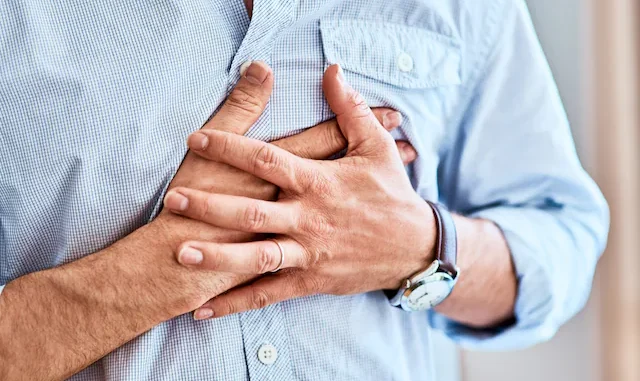
There is a good reason that heart disease is often referred to as a silent killer. Nearly half of all heart attacks are misdiagnosed as less serious issues. In addition to the obvious signs of heart disease such as chest pain, shortness of breath, lightheadedness, and nausea there are more subtle signs to look for. Being aware of these unexpected signs may save your life, so keep reading...CONTINUE READING THE FULL ARTICLES HERE
1.Radiating Jaw and Neck Pain.
Discomfort associated with heart conditions is not limited to chest pain. It is possible to experience jaw and neck discomfort as a result of heart issues such as heart disease or heart attack. Pain that radiates to the jaw and neck from the chest could be a sign of an irregular heartbeat or heart disease.
2.Calf Cramping. If you experience leg pain or discomfort while walking, it might be a sign of heart issues. Calf cramping, aching, or numbness while walking could be due to peripheral arterial disease (PAD). PAD is a condition in which the blood vessels supplying your organs and limbs become obstructed, resulting in lower blood flow.
3.Bad Breath. What is the connection between bad breath and heart disease? Gum disease is the connection. Gum disease might be connected to a number of heart problems, including hardening of the arteries, blood clots, heart attacks, and strokes, according to Dentistry IQ.
People with gum disease are twice as likely to develop heart issues such as heart attacks and strokes. Bacteria accumulate on the tongue, teeth, and gums, leading to bad breath.
Gum disease, also known as periodontal disease, is an infection of your gums that can cause tooth loss and pain. It’s caused by bacteria from plaque buildup in the spaces between your teeth. Plaque is composed of bacteria, food particles, and other substances that can build up over time if you don’t brush and floss regularly.
When gum disease starts, the bacteria that live in your mouth spread to the areas around your mouth and start to multiply. This causes an inflammation on the surface of your gums.
Kindly Follow Our WhatsApp Channel
Disclaimer: This content including advice provides generic information only. It is in no way a substitute for a qualified medical opinion. Always consult a specialist or your own doctor for more information. NEWSHOUR does not claim responsibility for this information.
